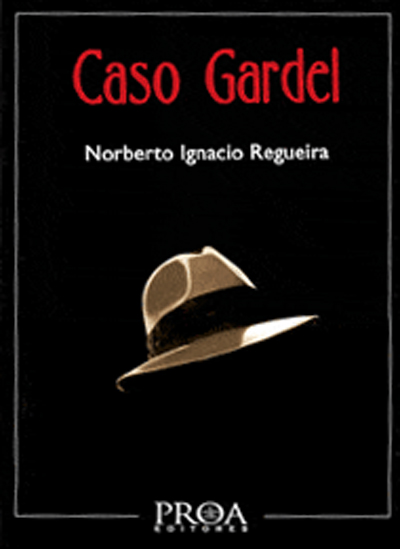By
“Gardel’s case”, short musings on its reading

he first thing I thought was, with the book by Norberto Regueira in my hands, that its title was quite suitable. The idea is not to reveal the mysteries of a myth but to find explanations for aspects of the life of a popular idol as we would do with an ordinary person based on the juridical acts of his life day by day. Not withstanding -paraphrasing Chesterton- it is the case of an extraordinary human being, someone unique because of his artistry and his personality.

The myth does not contradict either the person or the artist but belongs to another cosmos. It emerges and develops in the imagery of men running through arteries that do not understand about documents, laws or any other precision. They are nurtured on truths of faith, dreams and, mainly, on the solidarity that common needs generate which convert the fantasy of frustrated expectations into truths. Because of that, a myth can never be regarded as a case. Something that can be investigated.
It is within this framework where the legend starts to be built with oral transmission as a tool. Where a space in which the concept of strictness is subordinated to emotion is generated, where what is rational and objective gives way to passion making the logic of science useless when it tries to gather the documentary elements that uphold this or that event. That space is called by the author “the historical novel” which is the one that maintains a place of birth and a different origin of Gardel. If to this we add the policies of Uruguay originated in purely economic interests, the issue turns into a matter of state and it no longer has to do either with the man or the myth but with the use of the fallacy by the pathological liar to satisfy the dreams of a people without idols.
The author has, despite having admitted being a fan of Gardel’s, the merit of analyzing the most controversial issues according to the point of view of a professional lawyer that writes in layman’s terms. He assigns more importance to the indisputable documentation than to the subjective arguments of memory and oral tradition so frequent in the discussion of family origin and other important events in the life of the Zorzal Criollo. Furthermore, he writes in a good style which is something hard to find in the texts that deal with the tango universe in general.
The account about the will by which Gardel appointed his mother Berta as his only beneficiary is really enlightening, not only due to its detailed analysis –step by step- but also for the conclusions as for its implications and its verisimilitude. Also is quite interesting the importance he assigns, in his writing, to the wisdom and experience of the administrator Armando Defino, so disqualified by some opinions. But the most important thing of all is that it is highlighted the exercise of his right of identity. Gardel clearly states his nationality of origin, his family origins and his true name.
I am sure that Gardel took all the precautionary measurements to lead a life of work, full and without setbacks. He extended this wish to his mother whom he treated the only way a son that worships her would do. Likewise from the book we infer that the hackneyed mysteries of the idol are not such, they are commonplace stories. Almost all the important moments of his life can be known, a little due to the appearance of new findings –thanks to the effort of researchers-, but much because the singer himself was very far-sighted about his possessions and clear in his deeds, even in those the “historical novel” tries to distort.
It turns out quite clear what is said about Gardel as entrepreneur, especially in his capabilities for the negotiation with big companies. His company “Éxito Corporation Inc.”, especially created to substantiate his relationship with the Paramount is an example of that. It is a true surprise for the reader to discover an artist that knows how to take care of his interests and that uses the state-of-the-art technologies to carry them out. Furthermore the author scores a goal with the discovery of the Loew’s case which makes us clear why the singer decided to handle his businesses through a company.
The episode when Gardel obtained a certificate at the Consulate of Uruguay in Buenos Aires is described with the accuracy of a clock machine and he qualifies it as a stratagem whose objective was acquiring the Argentine citizenship.
Lastly I want to highlight the ending in which, by showing a great capacity for synthesis, Regueira recapitulates all the items of the story at issue and his conclusions that are, evidently, indisputable and precise answers written with the serene sobriety he displays throughout the book. When everything about Gardel seemed to have been written this book appears and brings a valuable contribution to establish the historical truth about our genial artist.
I think that it would be unfair not to say that by reading the pages of Caso Gardel we perceive the virtuous spirit of great colleagues like our friends Juan Carlos Esteban, Osvaldo and Julián Barsky and Miguel Ángel Morena who so much contributed to the knowledge of the life and the career of our top singer, the archetype of porteñismo and of our national essence.